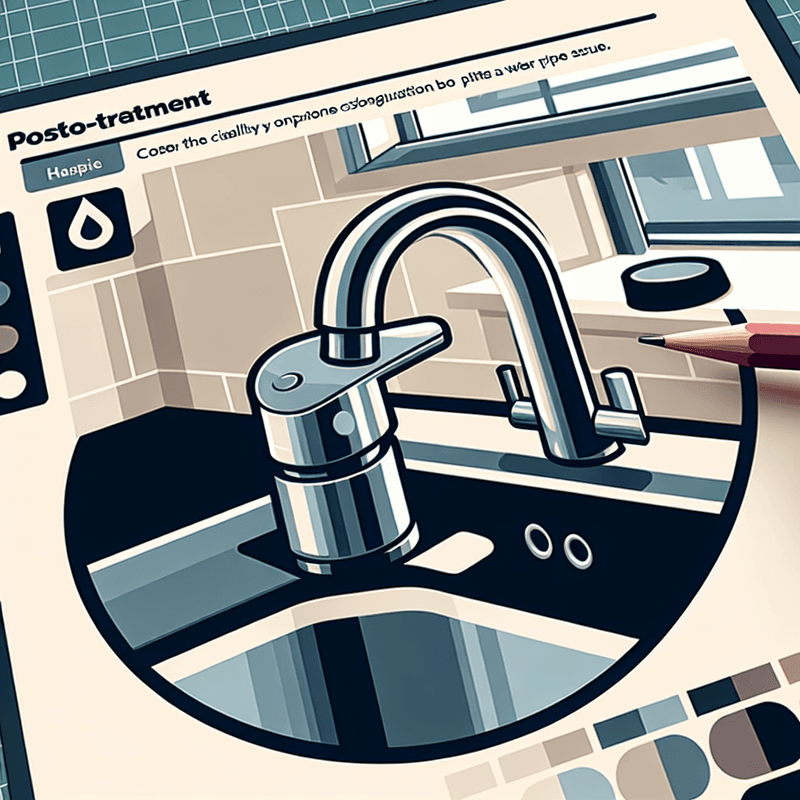Have you ever noticed stubborn stains or buildup on your taps, sinks, or even your glassware? These aren't just ordinary marks; they're a sign of hard water in your plumbing system. Many households across the UK deal with hard water, which can be both a nuisance and a costly issue if not properly managed. In this post, we'll dive into the causes of hard water, how to identify its effects, and what you can do to treat it, including when it might be time to call in a professional.
What is Hard Water?
Hard water contains high levels of minerals such as calcium and magnesium. These minerals are naturally occurring and are picked up by water as it filters through limestone and chalk deposits in the ground. While not harmful to health, these minerals can lead to various household problems that can be frustrating to manage.
Signs of Hard Water in Your Home
The first step in tackling hard water is to recognize its signs. Here are some common indicators:
- Limescale Buildup: White, chalky deposits around your faucets, on shower heads, and in kettles.
- Stains: Stains on dishes, glasses, and surfaces that are difficult to clean.
- Laundry Issues: Clothes may feel stiff and look dull due to mineral deposits.
- Reduced Water Pressure: Accumulation in pipes and showerheads can reduce water flow.
- Increased Heating Costs: Limescale can form in boilers and water heaters, reducing efficiency.
Understanding the Impact of Hard Water
Besides the annoyance of extra cleaning, hard water can have a more serious impact on your plumbing and appliances. Limescale can significantly shorten the lifespan of household appliances like washing machines, dishwashers, and boilers by clogging and corroding internal components.
DIY Hard Water Treatment Solutions
Here are some practical steps you can take to mitigate the effects of hard water in your home:
- Vinegar Solutions: Regularly cleaning taps and showerheads with a vinegar solution can dissolve minor limescale deposits.
- Washing Soda: Use washing soda in your laundry to soften the water and help prevent clothes from turning dull.
- Limescale Removers: There are many commercial limescale removers available, but ensure they are suitable for use on your appliances and areas affected.
Clarifying Filters and Softeners
One effective long-term solution is to install a water softener system. These devices use salt to replace hard minerals with sodium, softening the water before it enters your home’s plumbing system. Alternatively, magnet-based descalers or electronic water conditioners can also prevent limescale without altering water chemistry.
When to Call a Professional
While there are many DIY remedies for treating hard water, some situations require professional intervention:
- Severe Limescale Buildup: If the buildup has significantly reduced water flow or damaged appliances, it's wise to consult a professional.
- Water Softener Installation: Installing a water softener system is a complex task that involves altering your home's plumbing.
Prevention: A Long-Term View
To effectively combat hard water, consider a dual approach: regular maintenance and preventive measures. Regular descaling of appliances and avoidance of harsh chemical cleaners that can exacerbate limescale buildup are good practices. If you’re installing new appliances, look for models designed to be hard-water resistant.
Conclusion
Dealing with hard water can be a hassle, but understanding its signs and knowing how to manage it can significantly ease the burden. From home remedies to professional installations, there are several ways to protect your home from the effects of hard water. Remember, if the problem seems overwhelming, it’s okay to reach out to a professional who can offer more extensive solutions and help preserve the longevity of your plumbing and appliances. Take action today to ensure your water is soft and your home is safe from the harsh effects of hard water.





